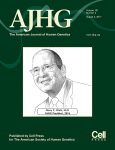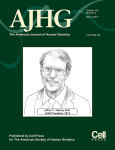
The leading genetic disease database has chosen a new name for a genetic condition, following complaints from a man whose son has the condition.
On Aug. 11, 2017, two days after our coverage of the situation, the Online Mendelian Inheritance in Man (OMIM) database changed the primary name of the phenotype associated with mutations in the RPS23 gene. The new name describes a set of features: “Brachycephaly, Trichomegaly, and Developmental Delay,” or BTDD.
Brachycephaly describes a condition where the back of the head is abnormally flat and trichomegaly refers to extra length, curling, pigmentation, or thickness of the eyelashes.
Marc Pieterse, of the Netherlands, has a son with the rare RPS23 mutation, one of two known patients in the world. The mutation affects ribosomes, cell components involved in protein production. On Aug. 9, we reported on Pieterse’s crusade against OMIM’s original name for the condition, which dubbed it a syndrome. He has feared that calling it a syndrome would “stigmatize” his son’s condition and tried to get the paper underpinning the OMIM entry retracted. The American Journal of Human Genetics has said it will not retract the paper.
Continue reading Genetic disorder gets name change, but patient’s father still not happy
 The father of a boy with a rare genetic mutation has accused a scientist of exploiting his child by proclaiming the defect a “genetic syndrome” and naming it after herself.
The father of a boy with a rare genetic mutation has accused a scientist of exploiting his child by proclaiming the defect a “genetic syndrome” and naming it after herself. In August, the U.S. Office of Research Integrity announced that a former postdoctoral fellow at the National Human Genome Research Institute (NHGRI)
In August, the U.S. Office of Research Integrity announced that a former postdoctoral fellow at the National Human Genome Research Institute (NHGRI) 